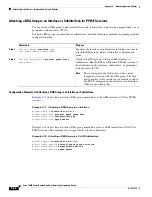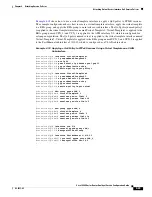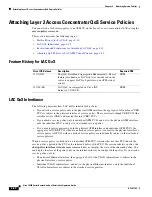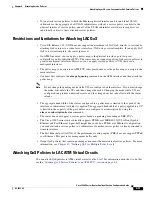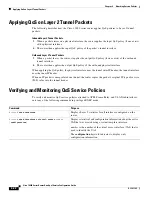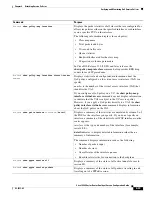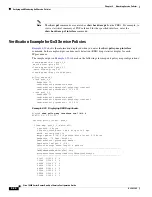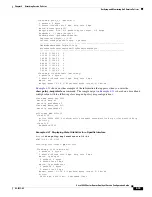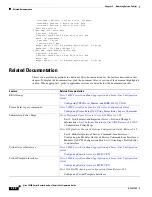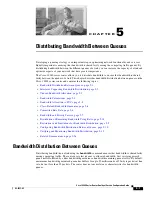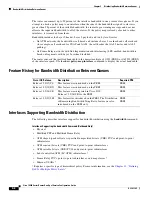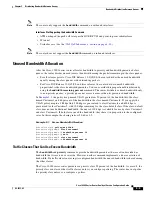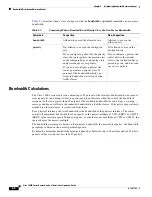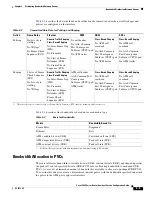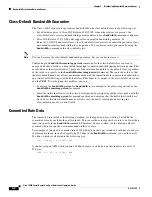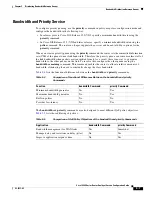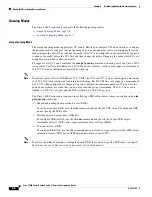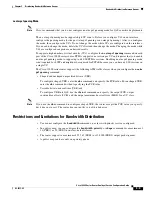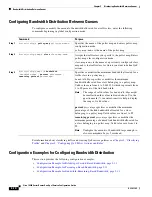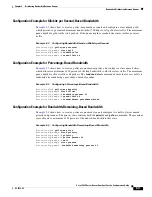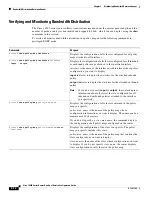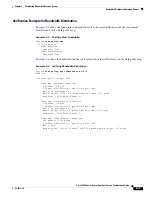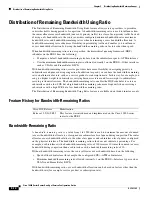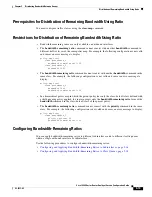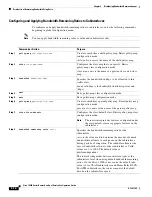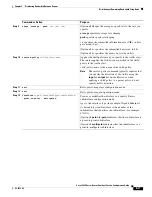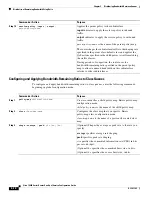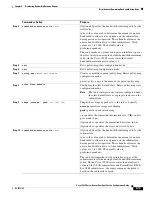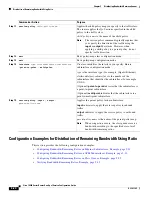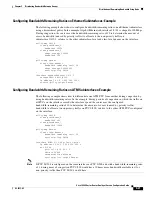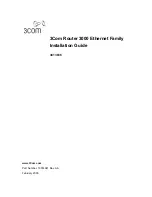
5-6
Cisco 10000 Series Router Quality of Service Configuration Guide
OL-7433-09
Chapter 5 Distributing Bandwidth Between Queues
Bandwidth Distribution Between Queues
Class-Default Bandwidth Guarantee
The Cisco 10000 series router guarantees bandwidth for the class-default class in the following way:
•
For all releases prior to Cisco IOS Release 12.0(19)SL, when other classes are present, the
class-default class receives no bandwidth guarantee unless it has a
bandwidth
command configured.
•
Cisco IOS Release 12.0(19)SL adds support for an implicit bandwidth guarantee. In
Release 12.0(19)SL and later releases, the class-default class receives a bandwidth guarantee of any
uncommitted interface bandwidth plus one percent. You can decrease this guarantee by using the
bandwidth
command in the class-default class.
Note
You can decrease the class-default bandwidth guarantee, but you cannot increase it.
Configuring the
bandwidth-remaining percent
command for the class-default class can lead to
unexpected behavior such as a drop in link throughput or unfair bandwidth sharing between queues. This
occurs because the router allocates 1 percent of the interface bandwidth to the default class, regardless
of the value you specify in the
bandwidth-remaining percent
command. The router does this so that
the class-default queue has at least a minimum amount of the committed rate to guarantee bandwidth to
any control traffic flowing over the default class. This behavior is unique to the class-default class only
and the PRE2. To workaround this problem, you can:
•
Configure the
bandwidth percent
or
bandwidth
rate
command in the policy map instead of the
bandwidth-remaining percent
command.
•
Limit the traffic that flows over the class-default queue by configuring another class queue with the
bandwidth-remaining percent
command specified and ensuring that the traffic that would have
flowed over the class-default queue now flows over the newly created queue, leaving the
class-default queue for control traffic.
Committed Rate Data
The committed rate includes the framing overhead, excluding bit and byte stuffing. For ATM, the
committed rate also includes the cell overhead. This causes the actual packet data rate to be lower than
what you specify in the
bandwidth
command. Therefore, be sure to allow for the framing and cell
overhead when you specify a minimum bandwidth for a class.
For example, if you need to commit a rate of 1000 64-byte packets per second and each have four bytes
of framing overhead, instead of specifying 512 kbps in the
bandwidth
command, you would specify
544 kbps, which is calculated in the following way:
1000 * (64+4) * 8 / 1000 = 544
A similar setup on ATM would require 848 kbps because each 64-byte packet requires two cells of
53 bytes:
1000 * 2 * 53 * 8 / 1000 = 848

